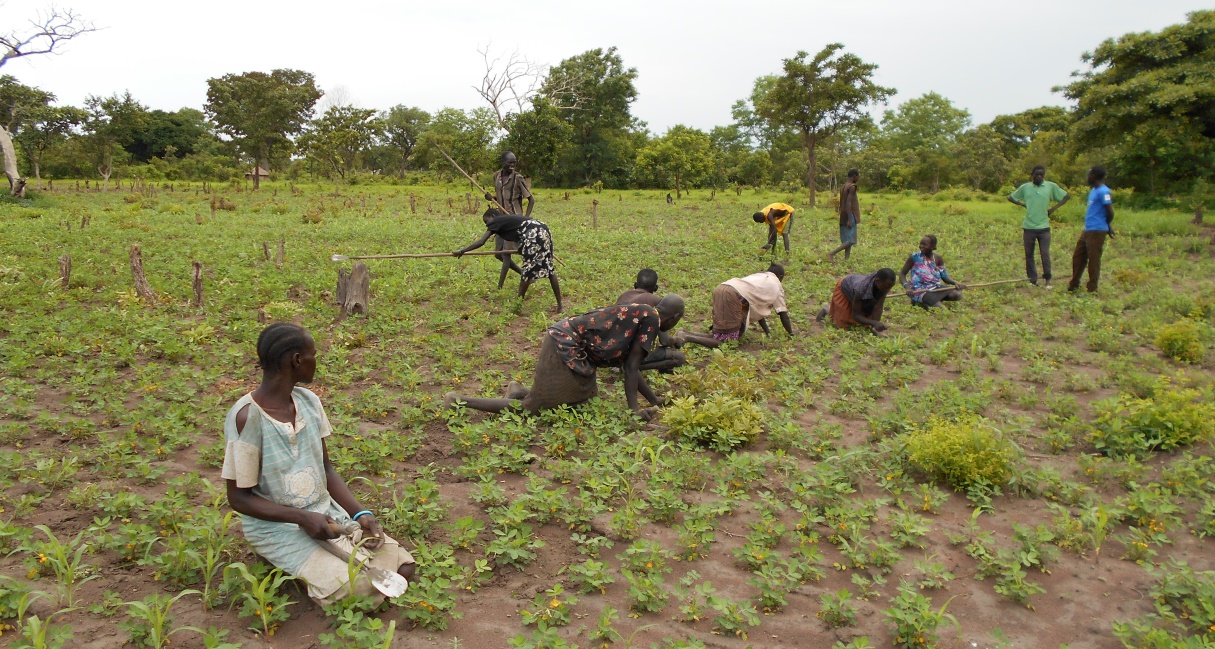
South Sudan is in a dire humanitarian crisis. Earlier this year, famine was declared in two counties of Unity state where conflict and mass displacement is prevalent. As anticipated, the humanitarian situation has become alarming today with over 1.9 million people displaced, over 2 million people fleeing to neighbouring countries and with over 6 million people food insecure and 7.6 million need humanitarian assistance.
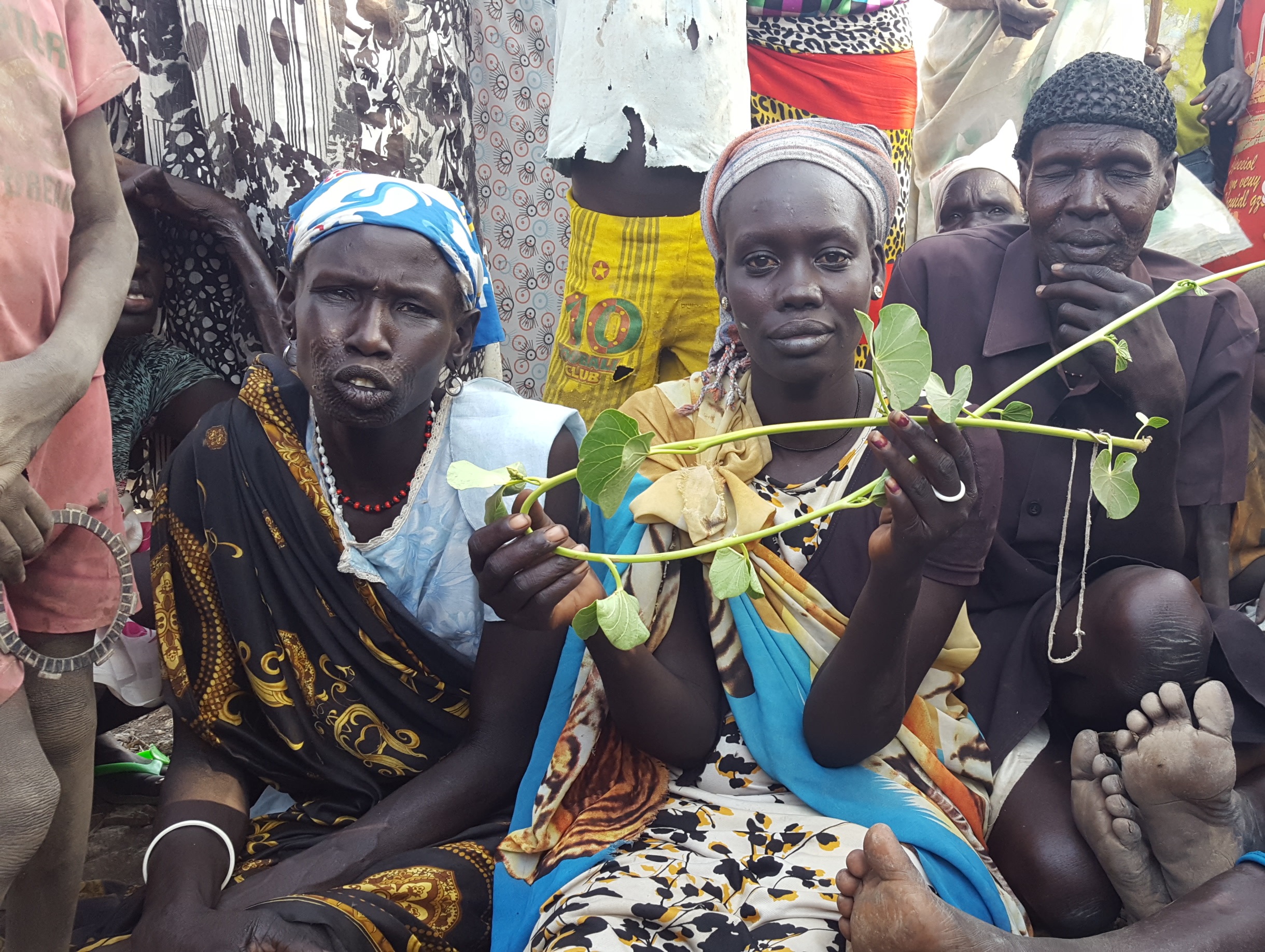
South Sudanese people are finding it tremendously difficult to put food on the table due to the continuing conflicts, displacement and worsening economic crisis, and with conflicts in the neighbouring Blue Nile and Nuba Mountains of Sudan, leading to the influx of some 280,000 Sudanese refugees into South Sudan.
Working together towards food security
ACTED, with support from the World Food Programme (WFP) has been providing life-saving services including general food distributions and cash and voucher distributions to displaced South Sudanese populations in Mingkaman, Tonj South, Tonj North and Wau and to Sudanese refugees in Maban. ACTED strives to stop significant numbers of South Sudanese people continue to rely on food aid from humanitarian agencies.
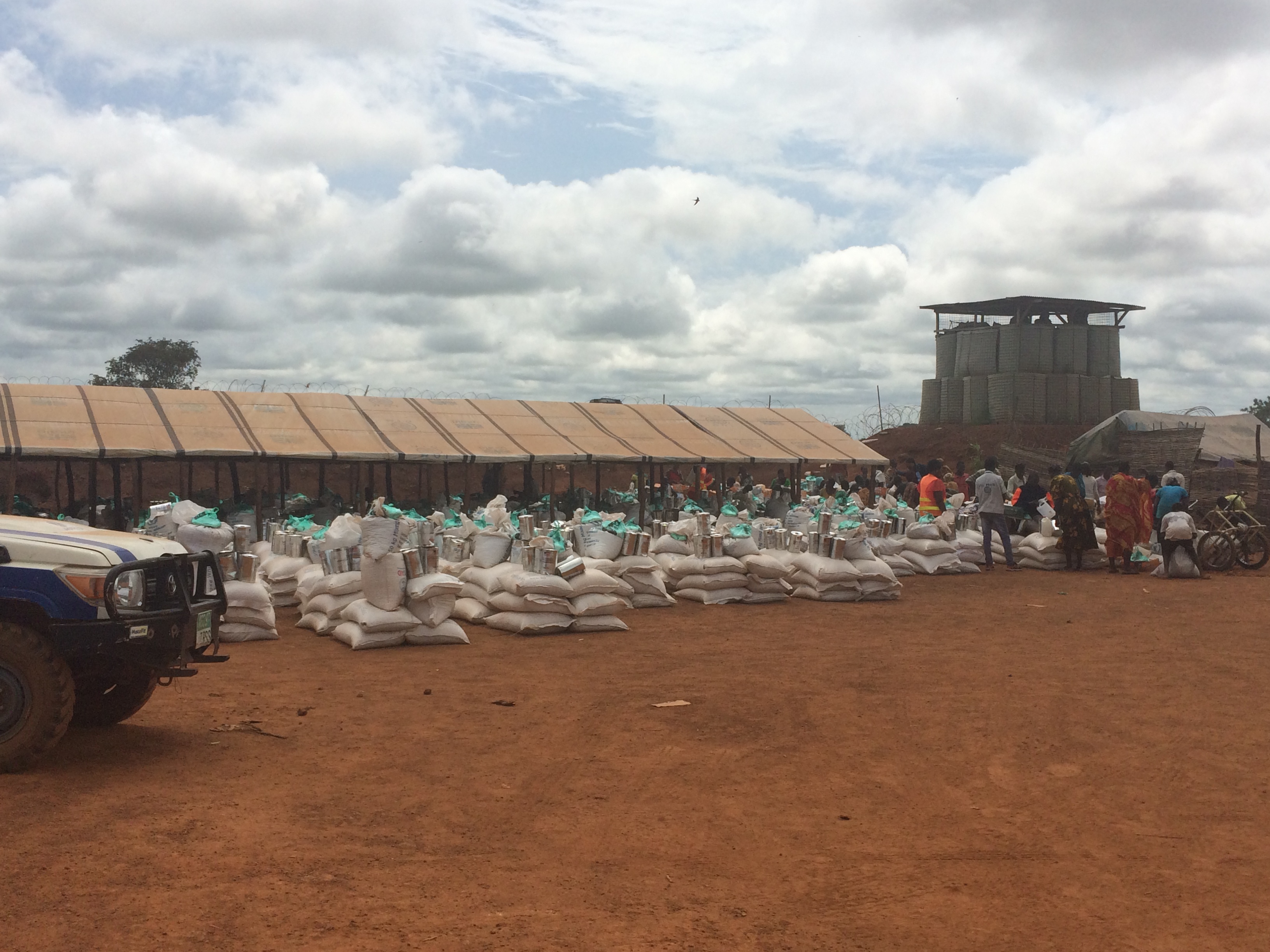
However, ACTED has been working with communities to implement food security and livelihood projects and build their resilience through longer-term solutions. In Akobo, with funding from SDC and the French Embassy, ACTED has established 60 Agro-Pastoral Field Schools (APFS) and, Voluntary Savings and Loan Associations (VSLA), and created community vegetable gardens which enabled to reduce reliance on food assistance. In Tonj, ACTED distributed seeds and tool kits, trained community-based animal health workers and promoted income-generating activities through agricultural and small business skills. These activities enable the local communities to earn money and provide for the basic needs of their family.
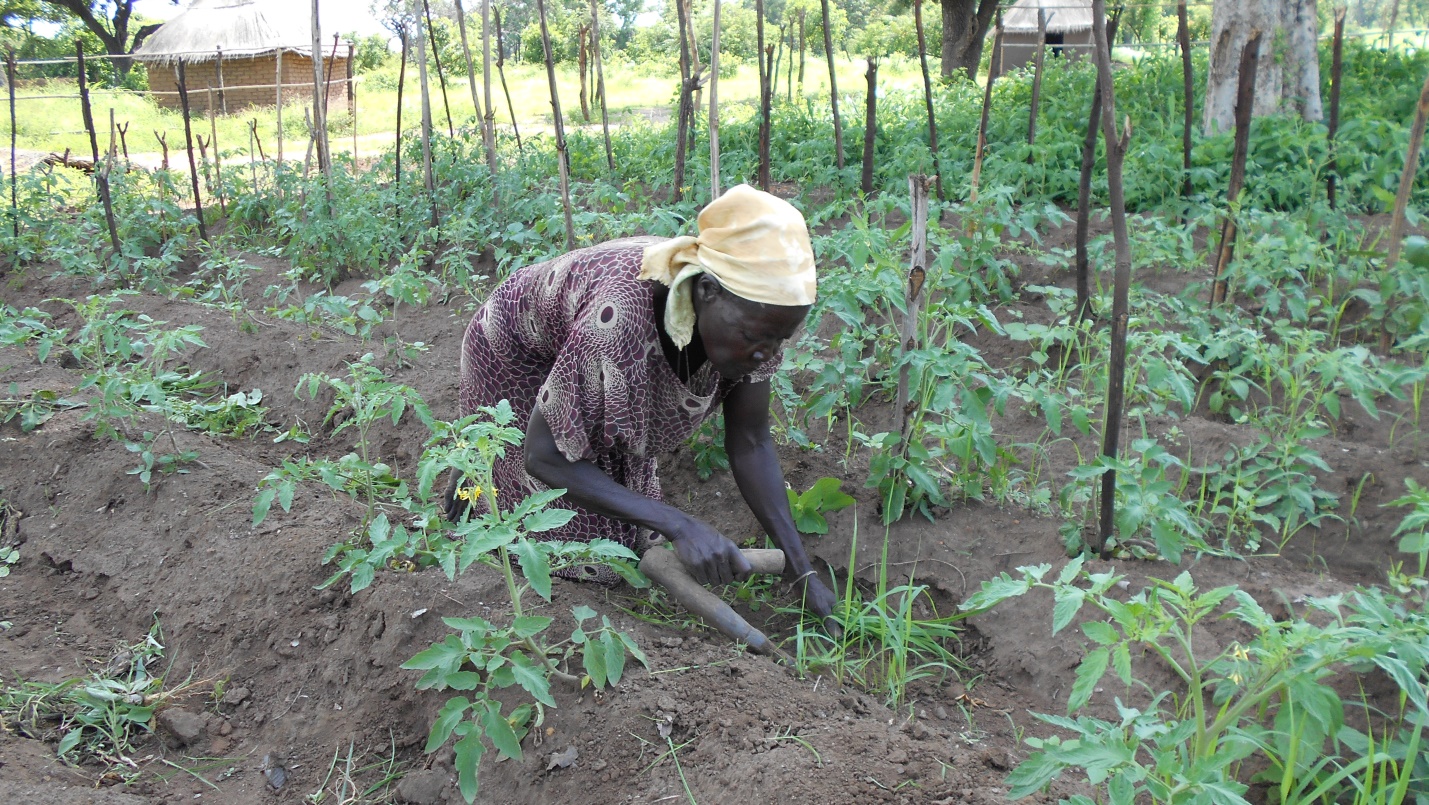
Adaption is never a gamble: Nyanok’s story
Nyanok, a member of Warker APFS group in Tonj South, did not believe the sorghum she was seeing and holding in the middle of her 1.5-acre group garden. Sorghum is the main staple food crop for the majority of South Sudanese, typically to make a South Sudanese dish known as “Kisira”.
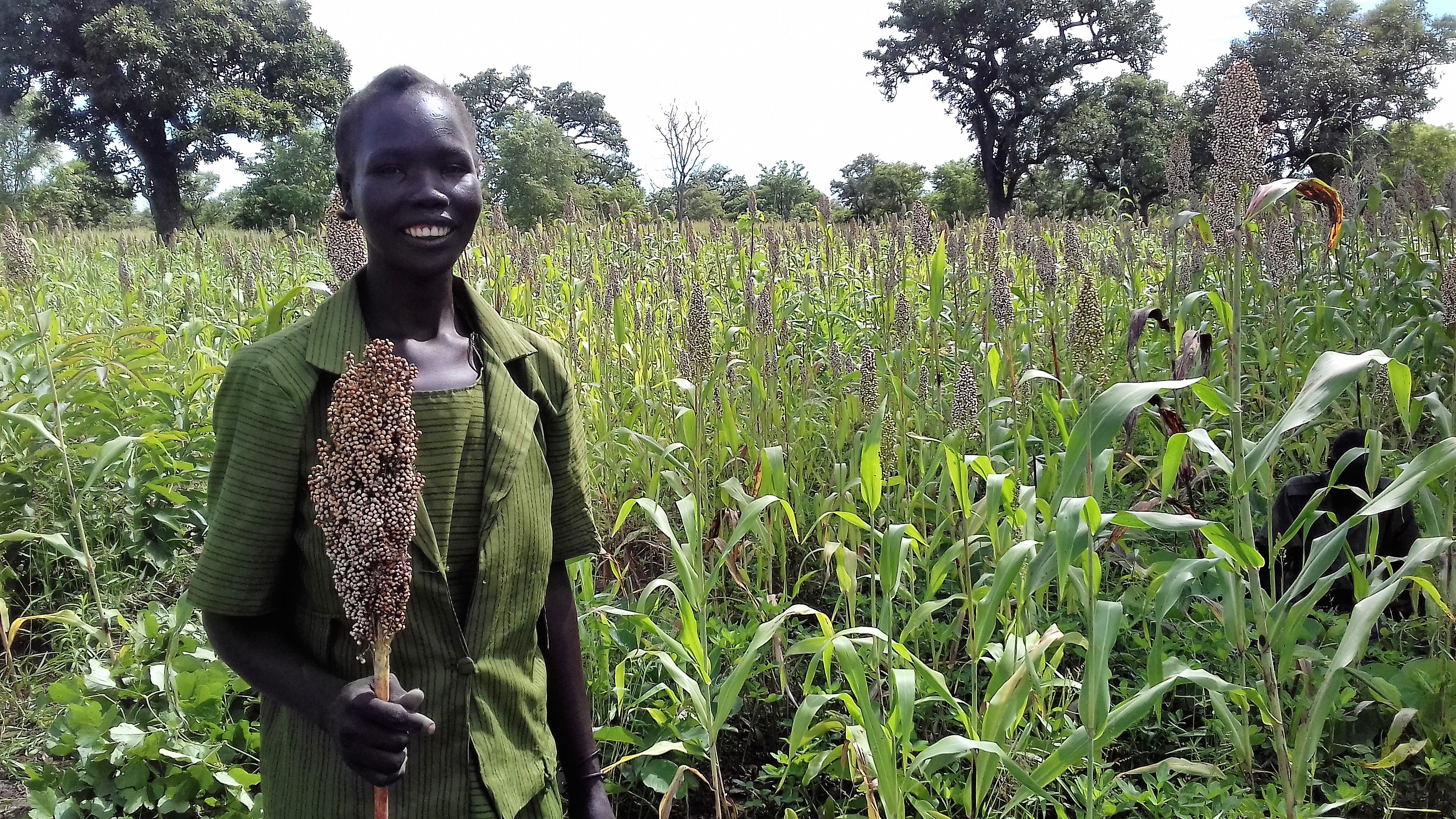
Nyanok, a member of Warker APFS group in Tonj South, did not believe the sorghum she was seeing and holding in the middle of her 1.5-acre group garden. Sorghum is the main staple food crop for the majority of South Sudanese, typically to make a South Sudanese dish known as “Kisira”.
Through the BRACED (Building Resilience and Adaptation to Climate Extremes and Disasters consortium, ACTED has distributed a short term maturing “Seso3” sorghum breed to 1,620 farmers from 54 APFS groups, ) that matures in less than 90 days. In comparison, the traditional sorghum breed takes 7 to 8 months to harvest, meaning that there are months in the year where hunger most notably sets in, especially in periods of drought or flooding.
We had never planted this type of sorghum in our land before. We have been used to our local long term sorghum but this variety has impressed us. Look at its head, it is so big and the quality of the sorghum is good!
Nyanok is confident that her family will not suffer hunger anymore as they can harvest sorghum in less than 90 days now. Nyanok and her group see a bright tomorrow. They plan to open up a bigger group garden and also to invest in individual sorghum gardens.